Movie Review: 'Minari'
A24's Oscar contender, Minari, is a specifically American story.
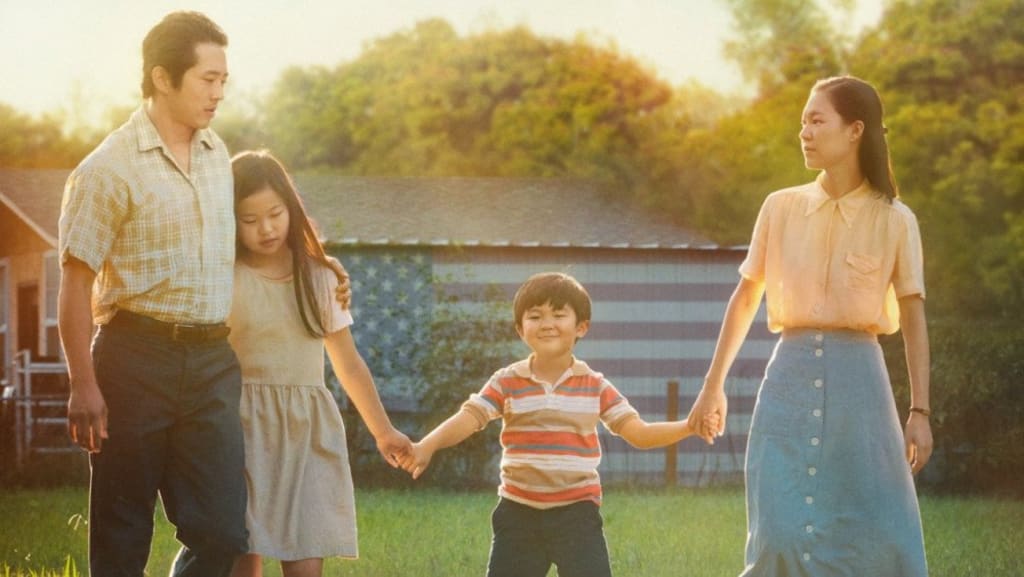
The American dream is for everyone. It doesn’t matter who you are or where you come from, the American dream, prosperity, independence, freedom, are available to everyone. Some people place hurdles in front of the dream based on their prejudice, petty hatreds, and ignorance. But those hurdles can take nothing away from the true American dream and those who fight to achieve it. A good example of that is the new movie Minari.
In Minari, an immigrant Korean family saves up just enough money to purchase acreage in Arkansas where their version of the American dream is set to unfold. While husband Jacob Yi (Steven Yeun) can see the dream as a future reality, his wife, Monica (Han Ye-ri), is more practical and skeptical. She may not have loved their life as immigrants in California but,, they were close to a hospital for their son, David (Alan Kim), who has a rare heart condition.
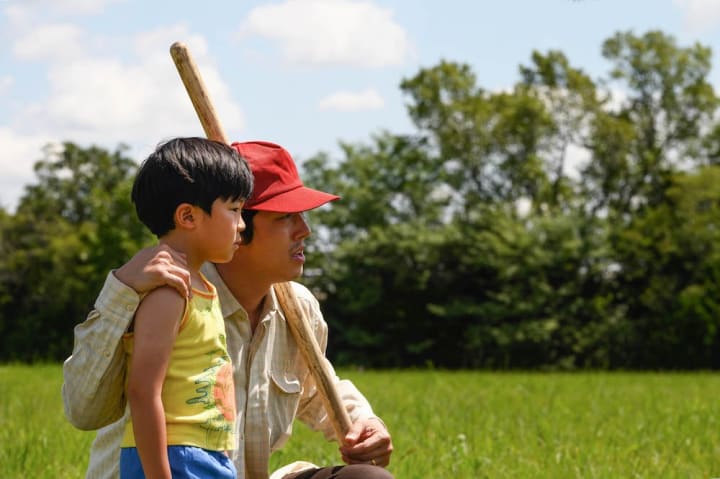
Being in the country, living in a trailer on their modest acreage in Arkansas,, Monica is very worried about not being close enough to a hospital and not having a supportive community of fellow Koreans or a Korean church nearby. There are several Koreans in a nearby community but not many and Monica is growing restless. This tension will simmer throughout Minari but Minari is no pot boiling, kitchen sink drama. Rather, Minari is a quiet, thoughtful and observant slice of authentic American life.
For David and his older sister, Anne (Noel Kate Cho), the adjustments to life in the country are almost non-stop.. Things get upended further when their grandmother, Monica’s mother, Soon Ja (Youn Yuh Jung), moves from Korea to their new home in Arkansas. Soon Ja is not your typical grandma, she’s not the lovey dovey type. While David expects doting and peaceful hobbying from his grandmother, she prefers TV and card games. Eventually however, Soon Ja wins him over and they bond while she teaches him about plants, specifically Minari, sometimes known as Chinese Celery. Slowly, almost imperceptibly, David gets over his stubborn conception of what a grandmother should be.
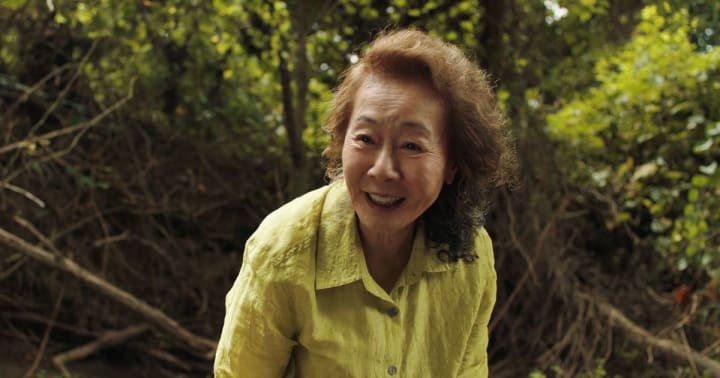
Minari was written and directed by Lee Isaac Chung who demonstrates a wonderful eye for both the cozy browns and greens of rural Arkansas and an eye for character details that give unique life to characters. The warmth of an Arkansas summer and the warmth of familial love are felt deeply even as the strain of striving for something almost out of reach becomes unbearable. Steven Yeun and Han Ye-ri portray Jacob and Monica as two halves of a whole that has begun to crack under the strain.
The authenticity of this marriage and the problems they experience are deeply felt because we’ve all been there. Partners, lovers, couples we’ve all reached breaking points, we’ve all made big decisions and ended with regrets, celebrations or mere modifications of our status quo. Some of those feelings are extremely subjective and that quality can divide even the most well established pair.
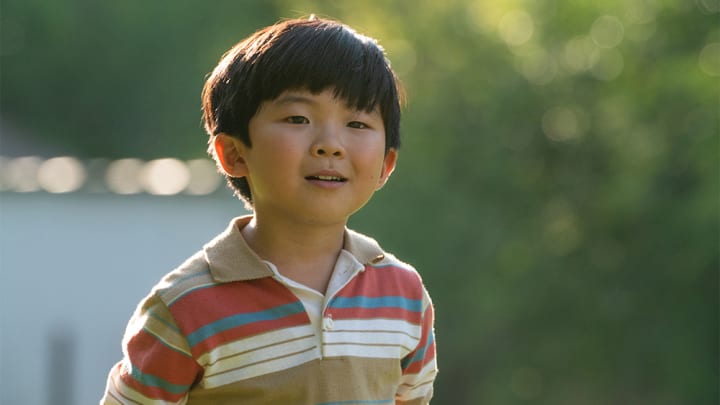
Here, Jacob believes in his farm and his plan of planting Korean crops that no one else is planting for many, many miles. Monica, on the other hand, doesn’t see the potential that Jacob sees. One of them has to be practical and think about practical concerns and she’s placed in that position almost by default as Steven continuously, single mindedly chases this goal. That he can’t or won’t see that Monica is unhappy and desperately lonely is reminiscent of the ancient tale of the Princess and the Pea, that seemingly minor irritant that just won’t go away no matter how much you try to stack it into non-existence.
Jacob farms more than 10 hours per day when he’s not doing that, they’re both working at a chicken plant, sexing chicks, dividing boy and girl chicks. It’s mind numbing work that Monica loathes and has long loathed since they started the job in California and continue it in Arkansas. That job however, is paying the bills while the farm struggles to simply get started. Eventually, when the farm runs out of well water, paying for water threatens to destroy what little success the farm achieves.
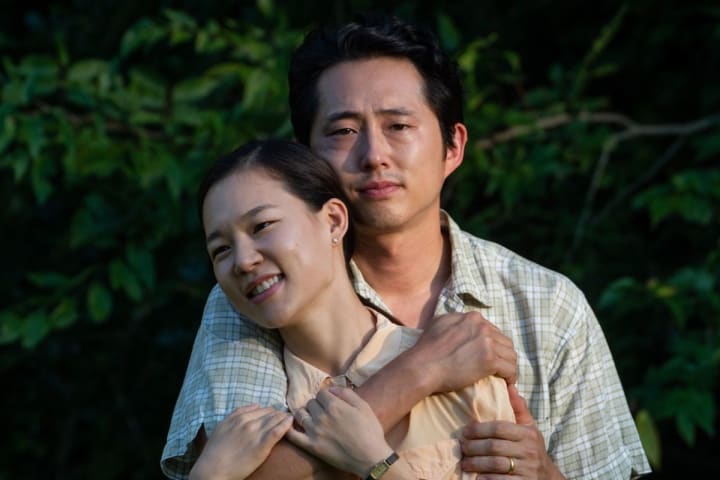
Minari reminded me of a Bruce Springsteen album. Filled with longing for an American dream that appears unattainable as the forces of a capitalist society close in around it. But, like Springsteen at his best, there is hope in the despair. Minari carries a similar through line of hope, and the belief that hard work has to pay off at the end. That’s how so many of us were raised. The notion that hard work matters, is recognized, and rewarded.
Minari is a specific story about that notion. It’s not a commentary on all of society, it’s specific to these characters and honors those characters by not using them as props but rather just telling their story. That it is a story that many can relate to is a byproduct of a story well told. Some will likely refer to Minari as post-racial but I prefer to think that the specificity of Minari removes any notion of how Minari comments on this or that. These characters are Korean, they speak Korean and carry on Korean customs and yet, their story is as American as any.
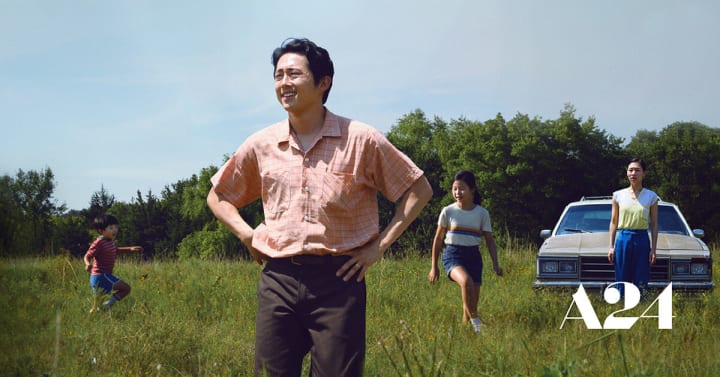
Minari opens in theaters nationwide on February 12th.
About the Creator
Sean Patrick
Hello, my name is Sean Patrick He/Him, and I am a film critic and podcast host for the I Hate Critics Movie Review Podcast I am a voting member of the Critics Choice Association, the group behind the annual Critics Choice Awards.






Comments
There are no comments for this story
Be the first to respond and start the conversation.